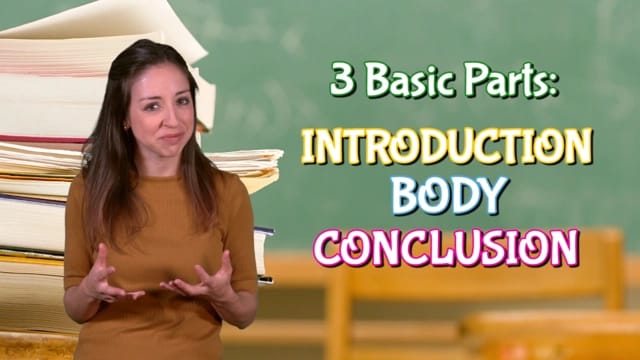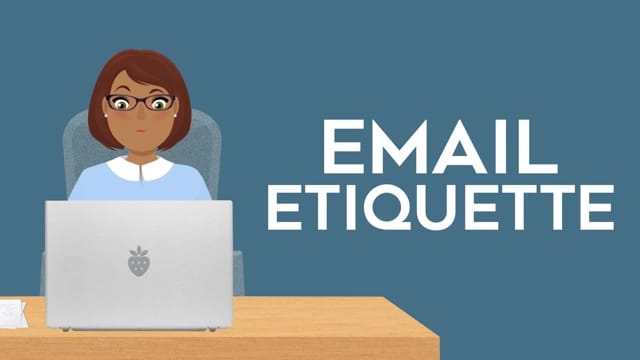15 Persuasive writing topics for students
Persuasive writing is writing that is used to convince someone to take action or believe in an author’s take on a topic or issue. Sometimes it is also referred to as argumentative writing.
The best way to get students excited about writing, generally, is to offer them topics that they are excited to write about.
When students are writing persuasively, they should include several elements. These include a strong introduction that clearly states the writer’s position, facts and examples to support the thesis, and clear reasons that the reader should agree with the writer’s point of view.
Another important aspect of persuasive writing is rhetorical devices. These rhetorical devices are ethos, pathos, and logos.
When thinking of persuasive writing topics, the correct elements must be examined, explored and modelled for students.
Topics should be selected based on the responses the teacher would like to elicit from the students. Teachers can also focus their teaching on one element: structure or persuasive devices for example, but allow free choice of the topic to increase student engagement.
Persuasive topics themselves can be given in more than one format. They can be presented as a question with two sides or they can be a statement that students defend or refute. Many persuasive topics include a “should” statement.
One activity that can help students write persuasively is to have a class discussion or friendly debate about a topic before students write. Talking about a subject before writing gives teachers the opportunity to engage prior knowledge, guide students to independent thinking, and to ask questions.
Talking about a subject before writing also allows students to interact with their peers, to hear different opinions, and to form reasons for their own opinions.
It can also be beneficial for students to read about a subject before they write about it. This allows students to grow and develop their background knowledge on their topic. It helps students to gain an understanding of a subject before they begin to write.
This article is broken up into primary, lower secondary and upper secondary school topics. The purpose of this distinction is that persuasive writing can look vastly different based on the year group of students. What is appropriate for primary is not always appropriate for secondary.
Primary topics
1) Is it better to have playtime indoors or outdoors?
Playtime is an important part of the school day for many students. It is often the only unstructured time students may have during the day. Students will give varying responses to this topic due to location, temperature, their personal preferences, and the types of activities that occur indoors vs. outdoors. Teachers could use this topic to explore the range of different arguments and viewpoints that can arise from a single topic.
2) Which is more important, maths or reading?
Students usually have strong opinions on school subjects. This topic allows them to express their opinions and learn the structure of persuasive writing.
Giving a topic that has both an academic focus as well as a way for students to learn about persuasive writing is a great way to create interest in writing for young students.
3) All school lunches should come with dessert

Many of the students I have had over the years have complained about school lunches. Writing about dessert being included in school lunches may be a good motivator for students to write a convincing persuasive text.
4) Is it better to watch TV or read books?
As teachers, we know that reading books is an important part of learning. However, television can be educational and can help students to develop language skills. Students can use this topic to research each activity and provide evidence to support their choice.
5) Students should be allowed to bring their pets to school.
During the pandemic, many students shared their pets on camera. Young students often like to share things that are important to their lives. Pets are part of their family and can provide comfort and reassurance to students.
If a student does not have a pet, this can be changed to accommodate the student’s needs. Perhaps they can write about bringing a family member to school or a treasured object.
Lower secondary school topics
6) Schools should not assign students homework
Homework is a topic that many people, teachers and students, can feel very strongly about. This provides the opportunity for research. Students can identify reasons why homework is unhelpful and cite evidence to support their claims.
7) There should be more diverse lunch options in school
Nothing motivates students quite like food! As a former KS3 teacher, I can say that they’re always hungry.
Something that many students complain about is school lunches. This topic gives them the opportunity to give their opinions on school lunches and write about diversity, health and choice in a structured way.
8) Is it better to learn from books or from technology?

Using this topic can open up a heated classroom debate. It also gives students an opportunity to research the benefits of technology and books. There is also the added topic of textbooks versus other forms of books.
This topic would allow students to combine their research and persuasive skills within the one topic.
9) Students should have an afternoon break
As a former KS3 teacher, I can attest to the fact that they still need to burn energy. It can be mentally and physically taxing for students to sit and learn all day without movement breaks.
Another way to approach this topic is by having students write a letter or email to the principal (or even the school board) that explains their position. Combining letter writing and persuasive writing opens up the opportunity to teach aspects of both writing genres at one time.
10) Students should be allowed to wear whatever they want to school
Most schools in the UK have school uniforms, but as students get older they often increasingly use their clothes to express their identity.
Students will have an opinion on what they want to wear! Some students may argue the opposite and give reasons why a uniform is appropriate.
Not only will you end up with some passionate feelings on this topic, but the subject matter is more familiar, allowing them to focus more on the overall structure required in a persuasive text.
Upper secondary school topics
11) Should schools ban the use of phones during the school day?
One way to get students excited about writing is to have them write about something they feel passionate about and this is a subject they are guaranteed to have an opinion about!
This would make a good introductory persuasive writing topic as students debate their points of view, and often their parents, to come to an overall conclusion.
When giving this prompt, the teacher can also require students to address concerns regarding students paying attention in class but otherwise students should be encouraged to make a list of arguments for both sides of this topic and build their writing from there.
12) Are group projects fair?
My own students recently discussed this topic and are in the process of writing a persuasive letter to present their opinions. I was surprised by how passionately my students felt about group projects and about working with groups.
This particular prompt lends itself to students writing a persuasive letter. They can write a letter to their teacher asking them to include more or less group projects in their subject and provide a range of reasons why.
13) What is one school rule that should be changed?
There are always rules that students do not agree with. This prompt allows students to express their thoughts, but also to form arguments that explain why they feel the way they do.
This prompt encourages students to develop their own topic and structure their own argument around this topic rather than simply responding to a given question.
This broader option will also provide the structure for students to write about how they will change the rule and how the change will benefit not just them but all students.
This is another topic that will require students’ research skills. Focus on the use of data and statistical information when writing.
Students often have very specific views on social media. As a KS4 teacher, technology is a very spicy subject and having students argue their viewpoints beforehand and then supporting them with empirical evidence will allow students to develop their thinking and reasoning skills.
Once the in-class exploration, discussion and research have been completed students can begin to write a thorough and well-reasoned piece on the topic of social media.
15) Should Shakespeare still be taught in schools?

Many students (and honestly, many teachers) find Shakespeare to be cumbersome to learn (and teach!) and irrelevant to current society.
Including this topic in the same time frame as teaching Shakespeare can make the prompt relevant to the students’ current situation. They must defend or rebuke the teaching of Shakespeare in the secondary school setting with specific evidence to support their position.
Writing a persuasive piece can be a beneficial learning experience for students. No matter the topic, students are being asked to form coherent arguments and support those arguments with reasons. This is an important skill for students to begin early in their learning so that there is time and space for these skills to be built upon as they move through their schooling. Exams and long forms of writing still provide the basis for testing in many subjects and thus we would be doing a disservice to our students if we did not give them the skills to tackle these writing styles.
References
- Motley, N. (2016) Talk Read Talk Write. 2nd edn. San Clemente, CA: Seidlitz Education.
- Saint Louis Community College (2024) Pathos, Logos, and Ethos. Available at https://stlcc.edu/student-support/academic-success-and-tutoring/writing-center/writing-resources/pathos-logos-and-ethos.aspx (Accessed: 11 September 2024).

Mattie Farrer
briefcase iconAVID Site Coordinator / Content Curator
Mattie Farrer has been an educator in various grade levels and capacities during her career. She has a passion for supporting English learners and their language development. She also loves helping teachers reach all students.
Other posts
Want more content like this?
Subscribe for blog updates, monthly video releases, trending topics, and exclusive content delivered straight to your inbox.















